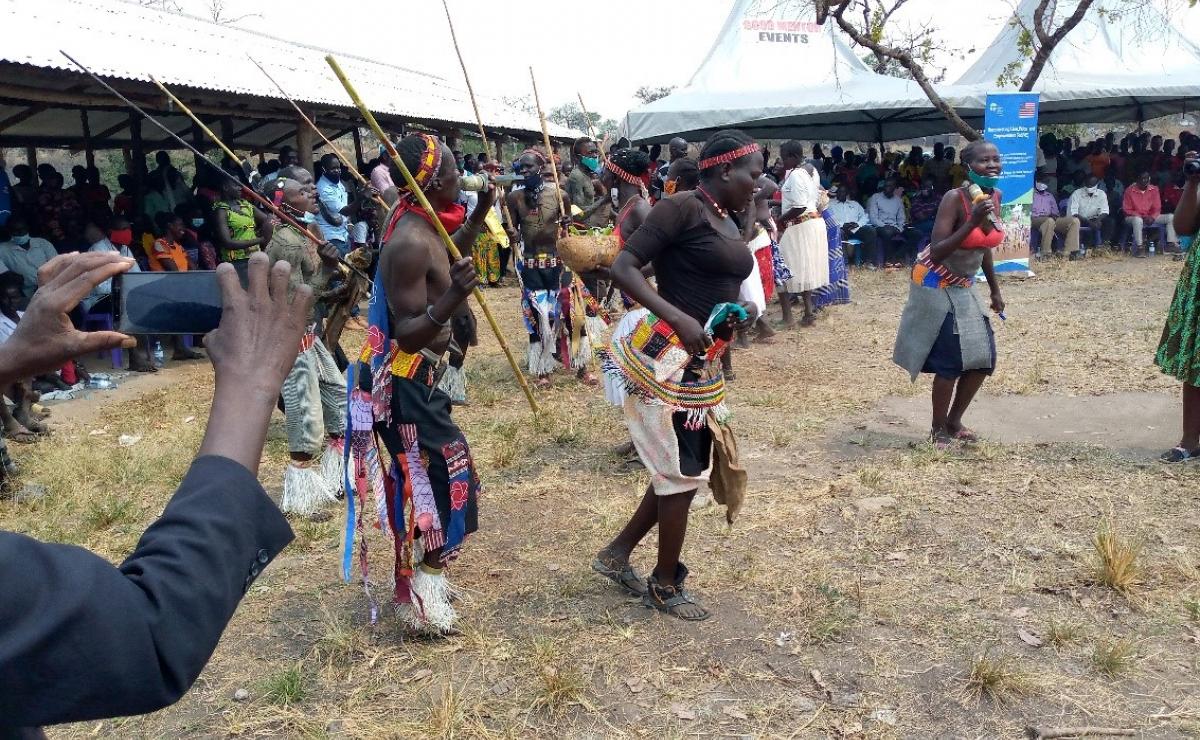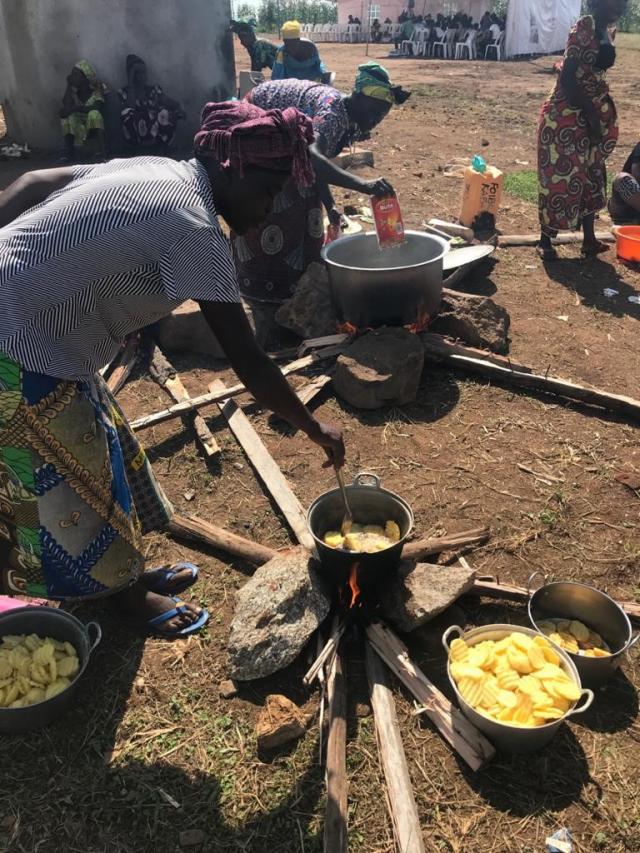LWF Uganda holds cultural gala to promote peace among refugees

LWF Uganda, with funding from the Bureau of Population, Refugees, and Migration (PRM), in March 2021 organised cultural gala activities where the different tribal/ethnic groups of refugees competed by showcasin
Conducted in Palabek, Palorinya, Kyangwali and Adjumani settlements under the Reconnecting Lives, vision and Empowerment (ReLiVE) project, the cultural galas aim to promote peaceful co-existence among host and refugee communities and unite the diverse groups in the settlements.
The refugee community attended the event, implementing partners, local government, Office of the Prime Minister, and host community leaders.
“We thank LWF and PRM for organising this cultural gala which has brought refugees and hosts together. This has enhanced peaceful co-existence,” said Geoffrey Onyango, a Community Development Officer (CDO) in Palabek Settlement.
Uganda is home to over 1.4 million refugees, mainly from the Democratic Republic of Congo and South Sudan, living in the various refugee settlements and belonging to over 56 tribes, all speaking different languages and other cultural practices.
As such, there are tribal conflicts and tensions, some of which have led to the loss of lives and property destruction. A case in point is the 2020 clashes involving two South Sudanese tribes, the Kuku and the Nuer, in the Palorinya settlement located in Northern Uganda.
Three people were killed, and over 100 grass-thatched houses mainly belonging to Nuer refugees were set ablaze in the two-day tribal fight between the two ethnicities.
The economic competition over scarce resources between host and refugee communities also fuels increased social tensions within society. In 2019, a fight erupted in the Nyumanzi refugee settlement (in Northern Uganda’s district of Adjumani) after a national’s mysterious death the night before, the cause of which locals blamed on the refugees.
In revenge, locals armed with bows and arrows launched an attack on refugees in the area with the ensuing chaos injuring six people.
Therefore, the event that features fun activities like exhibitions with no tribal limitations acts as an effective vehicle of positive change in enhancing peace and unity among the warring groups.
Similarly, during crises, there is a severe disruption in the social, emotional, psychological, cultural and other aspects of life. Socially and culturally, many small tribes are absorbed by larger tribes and tend to lose touch with their cultures, norms and beliefs.
g the beauty of their traditional cultures through different presentations like folk songs and traditional dances, poems and food.

Improving mental health and wellness
The cultural gala is also intended to reduce frustrations, stress, and psychological distresses that are common among refugees due to the breakdown of social, cultural and spiritual domains, hence creating lasting benefits to the mental health of people of concern. The cultural gala, therefore, creates a sense of belonging and helps refugees reconnect to their cultures.
During the cultural gala in Palorinya Settlement, Solomon Baka, the Arch Deacon of Kajo Keji Diocese of the episcopal church in South Sudan, emphasised that “You can never separate peace from mental health. These two moves together and complement each other. Such activities have helped us to reflect on the good side of life and relieve our stresses”
.” I feel renewed and mentally energized after attending the food and cultural gala,” Mr Baka added.
Ms Rebecca Imoya, one of the refugee participants in the traditional dances in the Palabek settlement noted that the gala provides strong community safety nets and creates positive coping alternatives.
“I had taken long not interacting with anyone. I lost my children while in South Sudan, and my husband was shot on our way to Uganda, but today I danced with my cultural group of Lango, and I feel all the negative thoughts and worries are gone,” said Imoyo.
Through these competitions, members from different cultural groups actively participate in singing folk songs, drama, cooking traditional food, reciting poems, exhibiting traditional wears, and performing traditional dances to make their respective cultural groups win and impress the audience.
This active participation helps to stimulate the psychological and emotional well-being of group members and the audience who watched the competitions
-END-

